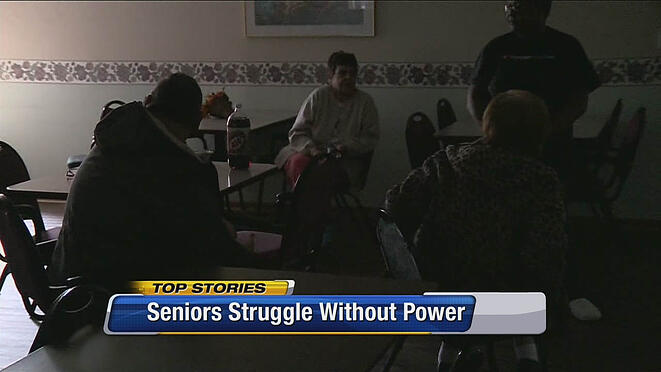Senior citizens living alone in their own home, rather than in assisted living or with someone else, may face a higher degree of safety challenges when it comes to power outages. Some may rely on assistive medical equipment such as respirators, ventilators, rechargeable power wheelchairs and scooters, oxygen machines, etc. These devices can be the difference between life and death, and are essential just as much as food, water, heating, and cooling.
When there is a power outage, the risk for danger intensifies, especially if there are no backup sources of energy to power basic equipment needs.

Using a Portable Generator to Protect Against Power Outages
Many elderly people can probably get by with battery backup when a power outage is of short duration. However, what happens when the threat of a natural disaster or some other unforeseen event takes place that could mean days without power? This is where the real risk for assisted medical needs lies.
There are some important, but basic questions we should all be considering when a long-term power outage exists. What about the need to keep food and perishables refrigerated? What if the only cooking source is an electric stovetop? What about staying warm or cool depending upon the weather conditions outside?
One answer to these critical questions is to use a portable generator when an emergency strikes. Technology has improved to the point where one can rely on a mid-range portable generator with relative ease to power their assisted living needs when the power goes out.

Consider wattage requirements
However, you will need to take into consideration basic minimum power wattages needed to operate essential equipment before purchasing a portable generator.
Ask yourself what power needs would be essential when the power goes out. Most people will need at least between 7,500 and 10,000 watts to run the following necessary appliances, which do not include assisted living devices.
- Central A/C – 3,800 running watts (or)
- 10,000 BTU Window A/C – 1,000 running watts
- Space Heater – 1,500 running watts (or)
- Furnace Fan Blower – 700 running watts
- Electric Stove – 2,100 running watts
- Refrigerator/Freezer – 550 running watts
- Light Bulbs (incandescent) 40 to 100 running watts each
These are estimates, so check your home equipment before committing. The idea is not to run all of these appliances at once, especially if you need to operate other medically necessary equipment.
Portable generator safety
Portable generators should never be used indoors, as carbon monoxide fumes can be deadly. The generator should be kept in a convenient place out of the elements until needed. Electric start generators are recommended for the elderly due to the potential difficulty of pull starts on some models.
A manual transfer switch will also need to be installed near the main circuit breakers, along with a power outlet to connect the generator. This allows the user to transfer the generator power directly back into the home and to prevent the backflow of electricity into power lines. While a manual transfer switch is not the only way to power a portable generator, is by far the safest.
Consult a professional
Most of this equipment ranges in price and quality between $1,000 and $3,000, depending upon brand, installation requirements, and wattage needed. Consult with a professional for proper installation, use, exact costs, and compatibility issues with existing home equipment.
To see how the process works, watch the video below. Marge, an ECI customer, demonstrates how easy it is to use her portable generator with a manual transfer switch to power her home.
If you're interested in getting more information or scheduling a consultation with an ECI Comfort advisor, click the button below or give us a call at 215-245-3200.




